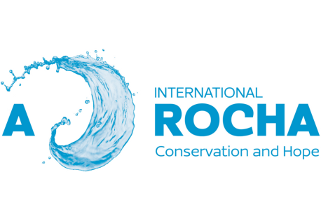Field Notes podcast
We are living in a time of crisis for the planet. Our overuse and misuse of water, energy and food has led to dangerous levels of habitat loss, pollution, soil degradation and ocean acidification. As a result we face the giant issues of climate change, biodiversity loss, disease and poverty.
A Rocha has always been a voice of hope in the environmental space. The Field Notes podcast, hosted by Peter Harris and Bryony Loveless, is an exploration of the ideas, practice and experience making a difference on the ground, through conversations with people who really know what they are talking about – from conservation scientists, explorers and biologists, to artists, entrepreneurs and theologians. They have hopeful stories to tell.
Soundtrack – Jill Phillips & Andy Gullahorn: ‘Only Say the Word’ (instrumental track) from the album ‘The Good Things.’ Used with kind permission. www.andygullahorn.com – www.jillphillips.com
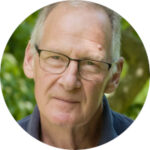 About Peter Harris
About Peter Harris
Peter co founded A Rocha in 1983 in Portugal. He is a birder and photographer and likes nothing better than getting stuck into an interesting conversation. He has a wide array of interesting friends from whom we sourced the guests for this podcast.
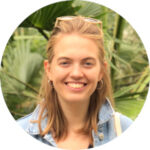 About Bryony Loveless
About Bryony Loveless
Bryony is a Policy Researcher for A Rocha International and wasn’t even born when A Rocha began! She cycles across vast distances every weekend and only sometimes falls off.
New episodes every two weeks. Available wherever you get your podcasts.
Episode 12: Seth Appiah-Kubi – Fighting for Ghana’s forests and the intrinsic value of nature
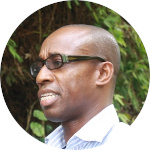 Is nature intrinsically valuable? Or should we only value nature that benefits humanity?
Is nature intrinsically valuable? Or should we only value nature that benefits humanity?
Trained as a Chartered Management Account with an MBA in International Business, Seth Appiah-Kubi hasn’t come from a conservation background. However, his background in finance and subsequent work in securing natural resources shows the importance of an interdisciplinary approach in caring for creation. We need scientists, but we also need economics, politicians and a wealth of other professions to understand the importance of nature.
In this episode, Seth talks with Bryony and Peter about the work of A Rocha Ghana in the race to protect the Atewa Forest from Bauxite mining. In a country where roughly 70% of the population are Christians, he also knows more than most about how the teaching of the church can impact a population. He speaks with wisdom about the challenges facing the Atewa Forest and Ghana, but also with a real sense of hope.
Episode 11: Deepa Senapathi – Balancing the needs of nature and humanity
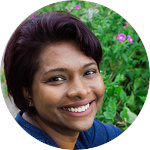 Are human livelihoods more important than nature?
Are human livelihoods more important than nature?
Dr Deepa Senapathi is Senior Research Fellow in Biodiversity and Ecosystem Services, at the University of Reading, UK, and also serves on A Rocha International’s Conservation Science Advisory Council. Deepa was born and grew up in Chennai, India, before further studies and research based in the UK. Her research has focused on critically endangered bird populations in Mauritius and India and, more recently, on insect pollinator communities in Britain and India.
She speaks with Bryony and Peter about the importance of balancing the needs of nature with the needs of humanity, the challenges this creates and why she remains hopeful for the future.
Episode 10: Colin Jackson – Conserving Kenya’s forests through church and community
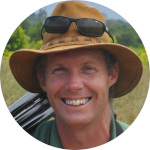
The Dakatcha Woodland is facing a crisis. It is among the ten most threatened forest hotspots in the world, located 150km north of Mombasa in the south of Kenya. It is home to a number of rare species, but is threatened by an unprecedented rush of people purchasing land for agriculture and, in particular, pineapple farming and charcoal burning.
Colin Jackson, Director of A Rocha Kenya, founded the organization in 1999 after working with A Rocha Portugal for three and half years. He speaks with Bryony and Peter about the importance of the Dakatcha Woodland, how climate change has altered the Kenya landscape, and the race to purchase land.
Episode 9: Enric Sala – The transformative power of nature
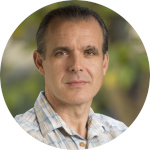 The world’s high seas – our so-called international waters – represent nearly 50% of the planet’s surface but are not owned by any state. Research shows that around half of fishing in the high seas would not be profitable without government subsidies or slave labour… So could we protect it by creating a giant marine reserve, and let nature flourish?
The world’s high seas – our so-called international waters – represent nearly 50% of the planet’s surface but are not owned by any state. Research shows that around half of fishing in the high seas would not be profitable without government subsidies or slave labour… So could we protect it by creating a giant marine reserve, and let nature flourish?
In this episode, Enric speaks honestly with Bryony and Peter about the desperate situation our oceans are facing. Despite the urgent and very real threats to marine life globally, he remains both pragmatic and optimistic about humanity’s ability to protect our seas and to find solutions that work for both people and planet.
Enric Sala is the National Geographic’s ‘Explorer-in-Residence’ which, as he describes in this podcast, is somewhat of an oxymoron. Formerly a university professor, Enric saw himself writing the obituary of ocean life and so quit academia to become a full-time conservationist. Enric has had an astonishing career, having earned numerous awards for his work. He founded and leads Pristine Seas, a project that combines exploration, research, and media to support and empower local communities and inspire country leaders to protect the last wild places in the ocean. To date, Pristine Seas has helped to create 22 of the largest marine reserves on the planet, covering an area of 5.8 million square km.
Find out more:
- Watch Enric’s TED talk ‘Let’s turn the high seas into the world’s largest nature reserve’
- Buy Enric’s latest book ‘The Nature of Nature: Why we need the wild’ online. Find out more here.
Episode 8: Rachel Mander – Activism, beauty and the possibility of change
 Rachel Mander talks to Bryony and Peter about being an unlikely campaigner, the power of personal action and unlikely places to worship. As a young and increasingly influential leader in the environmental movement in the UK, Rachel speaks honestly about the struggles and external and internal opposition she faces in challenging the status quo.
Rachel Mander talks to Bryony and Peter about being an unlikely campaigner, the power of personal action and unlikely places to worship. As a young and increasingly influential leader in the environmental movement in the UK, Rachel speaks honestly about the struggles and external and internal opposition she faces in challenging the status quo.
Rachel is part of A Rocha’s Theology and Churches team. She coordinates the Young Christian Climate Network and also works for Hope for the Future, supporting UK churches to build relationships with their Member of Parliament and take political action on climate change. She blogs at www.thejoyofrachel.com and you can find her on Twitter @manderrachel
Episode 7: Bob Sluka – Marine conservation and mission
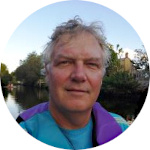 Why do starving manatees matter when there are children dying of preventable disease? Is telling people about Jesus the priority for Christians or should we be doing beach clean ups too? Dr Robert Sluka, A Rocha’s Lead Marine Scientist, talks to Bryony and Peter about how he came to believe that holistic marine conservation brings glory to God and what can be done to help the hungry manatees. Bob references a blog by Daniel Pauly about Seaspriracy, which you can find here.
Why do starving manatees matter when there are children dying of preventable disease? Is telling people about Jesus the priority for Christians or should we be doing beach clean ups too? Dr Robert Sluka, A Rocha’s Lead Marine Scientist, talks to Bryony and Peter about how he came to believe that holistic marine conservation brings glory to God and what can be done to help the hungry manatees. Bob references a blog by Daniel Pauly about Seaspriracy, which you can find here.
Bob is a curious explorer, applying hopeful, optimistic and holistic solutions to all that is ailing our oceans and the communities that rely on them. Dabbling in theology, he writes on the interface between Christian faith and marine conservation. He has worked cross-culturally, living for extended periods in Australia, India, Great Britain and his native USA where he currently resides. Robert’s research focuses on marine biodiversity conservation, plastic pollution, and fisheries, particularly marine protected areas. The ultimate goal is to glorify God through oceans and communities. Find Bob on Twitter: @BobSluka
Episode 6: Gisela Kreglinger – What wine teaches us about earth-keeping and living life to the full
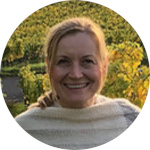 Wine is mentioned over 1,000 times in the Bible, but what is its significance for the Christian faith today? And how can we produce and buy wines which care for creation?
Wine is mentioned over 1,000 times in the Bible, but what is its significance for the Christian faith today? And how can we produce and buy wines which care for creation?
Gisela Kreglinger grew up on a family-owned winery in Franconia, Germany where her family has crafted wine for many generations. This unique experience has inspired her to write several books, including ‘The Spirituality of Wine’ and ‘The Soul of Wine’. As a trained theologian with a PhD from the University of St Andrew’s, Gisela has devoted her life to cultivating a more holistic, embodied spirituality that takes creation seriously, not least in the form of wine. To find out more about Gisela and her work, visit https://www.giselakreglinger.com.
She speaks with Bryony and Peter about her childhood as the daughter of winemakers, the complexity of a good wine and the importance of sustainable vineyards.
Episode 5: Stuart Blanch – The mental health cost of environmental campaigning
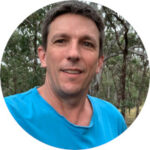
In the face of rising average global temperatures and the destruction of life on earth, how do we look after our mental health?
In this moving interview, Dr Stuart Blanch, President of A Rocha Australia, tells us about his personal experience of dealing with eco-anxiety, despair and anger in the face of the destruction of the natural world. He continues to hope and to love. Stuart grew up on the New South Wales Coast in a banana farming family and, alongside his role with A Rocha, now works in forest conservation policy for WWF-Australia. He is a conservation scientist, environmental campaigner and has trained in environmental law, and is passionate about God, people and the planet.
Episode 4 – Ellen Davis: Biblical ecology, contemporary life and church teaching
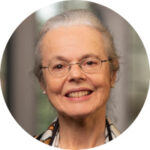
What does the Bible have to say about caring for creation in an age of industrialised agriculture and urban-dwelling?
Ellen F. Davis is Amos Ragan Kearns Distinguished Professor of Bible and Practical Theology at Duke Divinity School. The author of eleven books and many articles, her research interests focus on how biblical interpretation bears on the life of faith communities and their response to urgent public issues, particularly the ecological crisis and interfaith relations.
She speaks to Peter and Bryony about her personal interest in the environmental content of scripture, the teaching of the church on climate issues and our interpretation of the opening chapters of Genesis.
Episode 3 – Paul Kariya: Mediation, reconciliation and climate change
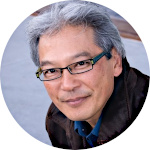
What role does reconciliation, mediation and forgiveness have in tackling the climate crisis?
Dr Paul Kariya is Senior Policy Advisor for the Coastal First Nations Great Bear Initiative, an alliance of nine British Columbia First Nations which aims to protect the Great Bear Rainforest, and was a trustee of A Rocha International for nearly a decade. By the end of the 1990s, forest and ocean resources of the area were being rapidly depleted by heavy industrial logging and commercial fishing. The Great Bear Initiative was envisioned to assert First Nations leadership in creating a new conservation-based economy. Paul talks to Bryony and Peter about his work with the Great Bear Initiative, the importance of conflict and reconciliation and how he holds hope for the planet.
For more information about the Great Bear Rainforest visit http://greatbearcorp.ca/about/
Episode 2 – Florence Muindi: Health, poverty and conservation in the global south
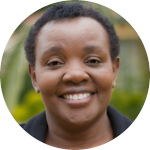 Is nature conservation a luxury for those who live in such poverty that even their survival hangs in the balance? Dr Florence Muindi is a medical doctor and founding president of Life in Abundance International. As a young adult, Florence felt called to serve some of the most vulnerable communities in Africa. She soon learnt that if she and her colleagues were to make any impact on all the causes of deprivation then an integrated approach was essential. In this episode, she talks with Bryony and Peter about her life, how her thinking and her work has developed, and about the importance of nature conservation for some of the poorest places on earth.
Is nature conservation a luxury for those who live in such poverty that even their survival hangs in the balance? Dr Florence Muindi is a medical doctor and founding president of Life in Abundance International. As a young adult, Florence felt called to serve some of the most vulnerable communities in Africa. She soon learnt that if she and her colleagues were to make any impact on all the causes of deprivation then an integrated approach was essential. In this episode, she talks with Bryony and Peter about her life, how her thinking and her work has developed, and about the importance of nature conservation for some of the poorest places on earth.
As CEO, Dr Florence Muindi oversees the work of Life in Abundance in 12 countries in Africa and two in the Caribbean, as well as support offices in the US, UK and Europe. She is considered a sector leader in transformational community development work. Florence is a wife to Dr Festus Muindi, a mother, an ordained minister and an A Rocha International trustee. She is the author of ‘The Pursuit of his Calling’ (Integrity Publishers Inc: 2008).
Life in Abundance is an African-founded, African-led, and faith-based organization with over 25 years of experience bringing hope to more than a million people in need. Visit https://lifeinabundance.org for more information.
Episode 1 – Paula Banza: Community, moths and wildfires (or, Why we cannot afford not to have hope)
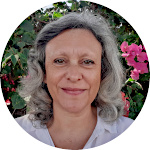 Dr Paula Banza talks to Peter and Bryony about moths and their little-known role as pollinators, and what it was like seeing her study site destroyed by fire only to recover before her eyes. She also shares insight from her 30 years living and working with the A Rocha Portugal community, and the parallels there are in the interdependence of human relationships and natural ecosystems.
Dr Paula Banza talks to Peter and Bryony about moths and their little-known role as pollinators, and what it was like seeing her study site destroyed by fire only to recover before her eyes. She also shares insight from her 30 years living and working with the A Rocha Portugal community, and the parallels there are in the interdependence of human relationships and natural ecosystems.
